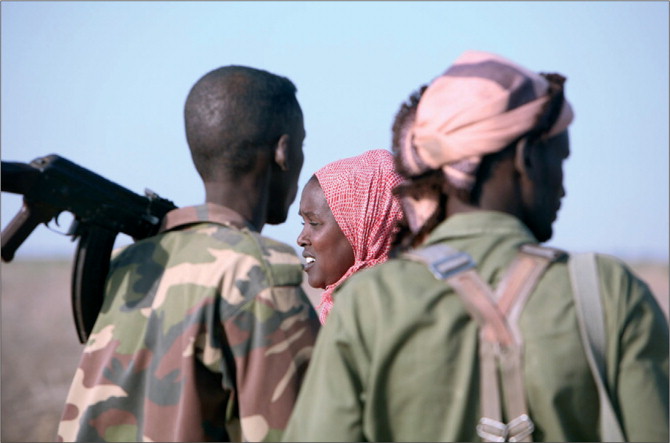Unfortunately, the 21st century world is all too familiar with violent conflicts. Some, like Israel’s recent incursion into Gaza,[1] make the headlines for weeks while others, like current events in Sri Lanka[2] that are part of a 26-year war, continue to bring death, pain, and misery with little international attention. Fortunately, medical humanitarian organisations do not pay attention only to news headlines and aim to bring medical assistance to people in countries such as the Democratic Republic of Congo and Somalia, two of the most neglected humanitarian situations in the world.[3]
Manoocher Deghati/IRIN
The effects of violent conflict on human health might be obvious but are still devastating: direct injury from fighting, indirect morbidity and mortality caused by the breakdown of public health, and wider societal consequences. The effects on mental health can affect quality of life, disability, and survival many years after the initial trauma.
The involvement of the health community in violent conflicts should be more than disaster relief. In a recent Lancet Editorial we said: “If the Hippocratic Oath means anything, all doctors whatever their situation, specialty, or seniority should live up to this name by calling on their national governments and the international community-perhaps through their national medical organisations-to ensure that civilians injured or affected by conflict receive the medical attention they need, wherever these people may be in the world. Such action is not being a so-called humanitarian-it is what being a member of the medical profession should be all about.”[4] The health profession could also have a strong role in the prevention and reconciliation processes. Health and violent conflict are strongly interconnected: examples being health and the root causes of violent conflict, the health consequences of violent conflict, and the possible role of public health before, during, and after violent conflict. These three components are rarely addressed together.
We hope to help change this situation in a special issue of The Lancet on violent conflict and health to coincide with Global Response 2010-an international conference on violent conflict and health in a globalised world-organised by Global Doctors and partners.[5] As part of an international collaboration, other journals such as Journal of the Danish Medical Association, and Social Science and Medicine will be organising their own theme issues.
For our special issue, we encourage submissions that strongly build on the evidence-base of humanitarian relief, action, and documentation in violent conflicts, and the overall role of health workers before, during, and after such conflicts. The deadline for submissions is Aug 3, 2009.
CB declares that she has no conflicts of interest.
[1] The Lancet. Violent conflict: protecting the health of civilians. Lancet 2009; 373: 95. Full Text | PDF(43KB) | CrossRef | PubMed
[2] The Lancet. Medical emergency in Sri Lanka. Lancet 2009; 373: 1399. Full Text | PDF(93KB) | CrossRef | PubMed
[3] Medécins Sans Frontières. Top ten humanitarian crises of 2008. http://www.doctorswithoutborders.org/publications/topten/archive.cfm?id=3245. (accessed May 5, 2009)
[4] The Lancet. Violent conflict: protecting the health of civilians. Lancet 2009; 373: 95. Full Text | PDF(43KB) | CrossRef | PubMed
[5] Global Doctors. Violent conflict in a globalized world. http://www.global-doctors.org/cms/index.php?option=com_content&view=article&id=79. (accessed May 5, 2009).



